

Publications Regarding Civil Liberties
Articles

The Hidden Lesson of Israel's Iran Victory
Written By: Yohanan Plesner
Israel’s victory over Iran was not just a triumph of military strategy—it was a testament to democracy and moral clarity. In a region plagued by autocracy, it is Israel’s enduring commitment to freedom, pluralism, and the rule of law that gives it the resilience and strength to prevail.

Qatargate and Reporter’s Privilege
Written By: Dr. Tehilla Shwartz Altshuler
The police summoned three journalists to testify as part of the investigation into links between the Prime Minister’s advisors and Qatar. Unlike other privileged relationships, reporter’s privilege is not grounded in law in Israel. Why is that and when are journalists asked to reveal their sources?

Investigating Allegations of Detainee Abuse is Israel’s Moral and Legal Duty - And a Diplomatic Necessity
Written By: Prof. Amichai Cohen, Dr. Eran Shamir-Borer
Investigating allegations of abuse at the Sde Teiman detention facility is Israel's moral and legal duty as a rule-based democracy and protects the country on the international legal and diplomatic front.

The Judicial Overhaul and Anti-Democratic Initiatives - Part II
Written By: Adv. Anat Thon Ashkenazy, Adv. Daphne Benvenisty
IDI experts outline the initiatives and measures undertaken by the government that, taken together, constitute a concentrated effort undermine Israel's democratic institutions. At the core of these efforts is a dramatic attempt to weaken the status of the Attorney General; increased politicization of the police; continued undermining of the independence of the judiciary and more.
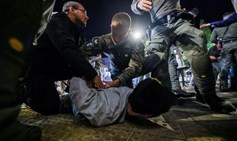
A Rise in Complaints of Police Violence
Written By: Dr. Guy Lurie
The increase in the number of complaints of police violence submitted to the DIPI over the last year raises serious questions, especially in light of the timing in which the current Government and Minister of National Security took office. This research surveys the trends in complaints of police violence.
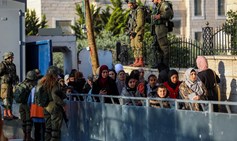
Preparing for Ramadan as Israel Arms Itself
Written By: Adv. Mirit Lavi
In a few days, Israel's Muslim citizens will begin celebrating the month of Ramadan. While safeguarding this ritual and protecting freedom of worship, security forces will face challenges in defending public security, as this is considered a sensitive time. With the influx Israeli citizens taking part in the civilian defense squads and licensing themselves, the police must make serious efforts to ensure all Israeli citizens feel safe.

What We Should Learn About Ourselves, On the Occasion of Facebook’s 20th Birthday
Written By: Dr. Tehilla Shwartz Altshuler
Twenty years into the social media revolution, of which Facebook is the poster child, we need to reassess and renew our fundamental democratic principles.

A Blow to Internal Security Governance in Israel
Written By: Adv. Mirit Lavi, Dr. Yael Litmanovitz
During the October 7th attacks, the home front became the front line with Israelis attacked in their own homes. This new reality led not only to a beefed-up presence of police and military forces in public spaces, but to civilian-based security initiatives in many communities. Finding the right balance between the police and civilians is imperative to providing much-needed safety and security for all Israelis.

Tel Aviv's Yom Kippur Struggle Could Have Been Avoided
Written By: Adv. Shlomit Ravitsky Tur-Paz
The judicial overhaul is forcing Jewish Israelis to choose to identify, in an almost dichotomic manner with one of two camps. As they clash, the real loser is our unifying, complex, diverse, and open Jewish identity.

On Protest and Enforcement: An International Perspective
Written By: Prof. Yuval Shany
The protest against the government legislation is clearly covered by the protections granted by international law to the right to assembly. The position of the Attorney General of Israel strikes an appropriate balance between exercising the right to demonstrate and protecting competing rights and interests.
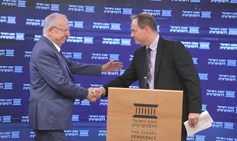
#Fix It, Don’t Destroy It
The Israel Democracy Institute’s special conference today (December 12th) focused on the implications of the proposed judicial reforms that have been proposed by members of the incoming coalition.

The Proposed High Court Override Clause Will Reverse Gender Equality Gains
Written By: Adv. Anat Thon Ashkenazy
The new coalition's shortage of women and its proposed High Court override clause are a danger to the struggle for gender equality in Israel.

Judicial Reform in Israel
Written By: Prof. Suzie Navot
In this edited transcript of her conversation with BICOM Director Richard Pater, Vice-President of Research at the Israel Democracy Institute Professor Suzie Navot argues that judicial reforms proposed by the right-wing bloc – to Knesset override of the Supreme Court, executive immunity, and the appointment of judges – threaten Israeli democracy and the already fragile separation of powers.

Judicial Reform
Written By: Prof. Suzie Navot
Prof. Suzie Navot sits down with Richard Pater of Bicom, to discuss judicial reform. Prof. Navot explains the background of Israel’s legal system, its uniqueness among other parliamentary democracies and the significance of potentially implementing an override clause.

The Dramatic Consequences of Not Renewing the Judea and Samaria Law
Written By: Colonel (Res.) Dr. Liron A. Libman
The expiration of the Judea and Samaria Law will have dramatic consequences for both Israelis and Palestinians. Is there a way to bypass this expiration? Will Israelis residing in the territories be able to vote in the elections? What else is at risk?

The Judea and Samaria Regulations Law: An Explainer
Written By: Colonel (Res.) Dr. Liron A. Libman
The bill to extend the validity of regulations that apply Israeli law to Israelis living in Judea and Samaria failed to pass the preliminary Knesset plenum vote Monday - Dr. Libman explains the law's history and its implications
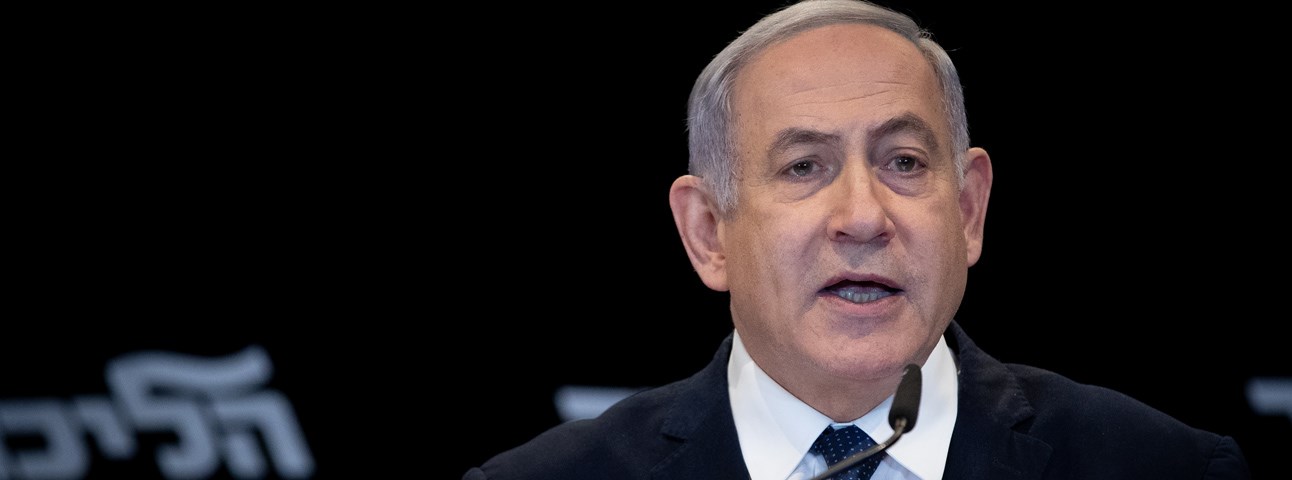
An International Look at Israeli Democracy Under Benjamin Netanyahu
Written By: Dr. Or Anabi, Prof. Tamar Hermann
The new government offers a timely opportunity to review and assess Benjamin Netanyahu’s premiership in terms of its impact on Israeli democracy.

Women's Representation in the Knesset and the Government: An Overview
Written By: Dr. Assaf Shapira, Prof. Ofer Kenig, Avital Friedman
Women still constitute less than 30% of all Knesset members and the percentage of female cabinet members in the government has never risen above 23.5%

Take Great Care When You Limit Freedom of Expression
Written By: Prof. Yedidia Z. Stern
Instead of training rhetorical cannons on the court, which is doing its job in a chaotic situation, the legislature should delete Section 7A from the Basic Law. Let everyone run for the Knesset, and let those who violate criminal laws bear the consequences of their actions
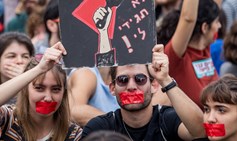
No, Democracies Don't Have "Cultural Loyalty" Laws
Written By: Adv. Edna Harel Fisher
The truth is that the bill was designed to castrate expression and creativity, and induce self-censorship by artists and cultural institutions.

Proposed Facebook Bill - Dangerous Legal Precedent
Written By: Dr. Tehilla Shwartz Altshuler, Dr. Rachel Aridor-Hershkovitz
Proposed Facebook bill circumvents standard legal procedure and threatens to transform Israel into a world leader in repression of free speech
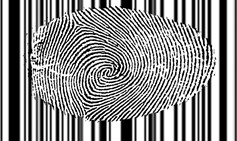
Private Eyes: Data, Metadata and Civil Rights
Written By: Prof. Yuval Shany, Gilad Halpern, Dr. Dahlia Scheindlin
Professor Yuval Shany discusses the seeming dissonance between Israel's advanced surveillance technology, the minimal restrictions on using it, and a citizenry that hardly cares– and why all this might have to change
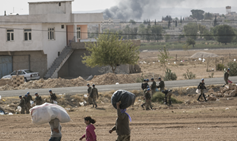
IDI Ahead of Deliberations on Removing Tax Benefits from Human Rights Organizations:
‘The bill will harm nonprofit organizations that lend a helping hand to humanitarian purposes like assisting Syrian children’

A History Lesson
Written By: Prof. Mordechai Kremnitzer, Admiral (Res.) Amichay (Ami) Ayalon
Experience and history repeatedly teach us that what was once widely accepted as an irrefutable truth can be revealed to be a total falsehood.

Is Israeli Society Frail Or Flourishing?
Written By: Prof. Yedidia Z. Stern
Is Israeli democracy weak, fragile and on the brink of collapse, or is it robust, stable and resilient?

Policy Statement: The 'Facebook Bill' (Hebrew)
Written By: Dr. Tehilla Shwartz Altshuler
Ahead of a recent discussion by the Ministerial Committee on Legislation on the “Facebook Bill,” IDI’s Dr. Tehilla Shwartz Altshuler wrote a policy statement in which she called the bill non-applicable to the modern day. She said the bill is likely to cause disproportionate censorship through what will be dysfunctional legal proceedings.
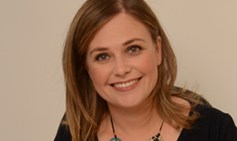
Healthy Public Curiosity vs. Official Privacy
Written By: Dr. Tehilla Shwartz Altshuler
Dr. Tehilla Shwartz Altshuler argues that the Protection of Privacy Law does not create an absolute right, and whoever enters public life must be able to give up parts of his/her privacy, no matter how difficult that might be. This op-ed originally appeared in the Atlanta Jewish Times.
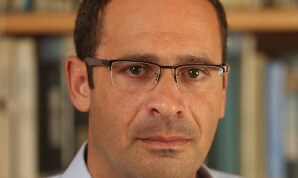
How To Prevent A Religious Civil War From Consuming Western Europe
Written By: Dr. Shuki Friedman
While Europeans are trying to maintain their sense of ownership over the public sphere, restrictions on religious expression in the public domain strike at Muslims’ most basic of rights: to continue living their lives as guided by the dictates of their own conscience. Will there be a religious-based civil war? This article was first published by the Independent Journal Review.

The Right to Know: A Right, Not a Gift
Written By: Dr. Tehilla Shwartz Altshuler
The challenge of freedom of information goes beyond the balance between the right to information and the limits of that right.

An Israeli Shabbat
Written By: Dr. Shuki Friedman
What does Shabbat and its observance look like in the State of Israel? Can every individual enjoy this day of rest in the way he/she chooses? Are there actually individuals who are forced to give up Shabbat as a result of a lack of choice or economic coercion? IDI scholar Dr. Shuki Friedman explains in this article which originally appeared on eJewish Philanthropy.

Could Profiling Prevent Another Orlando Shooting?
Written By: Story Hinckley
Often missed in the civil liberties debate over profiling is evidence that shows it is not effective. But proponents point to Israel, whose airport screening has kept it free of attacks since 1972.

25 Events that Impacted Israeli Democracy
In honor of the 25th anniversary of the Israel Democracy Institute, we feature a list of the 25 formative events that shaped Israeli democracy.

Expand Israeli Absentee Voting Rights
Written By: Prof. Ofer Kenig
In this op-ed, which first appeared on the Times of Israel, IDI's Ofer Kenig argues that it is time to cautiously expand the right of absentee voting to more Israelis.

Responsibility to Protect – a Right of Self-Defense for All States against Atrocities
Written By: Prof. Mordechai Kremnitzer
This essay makes a case for the international community’s right of self-defense against atrocities, through its members, and to refer briefly to the challenge of implementing such a right.

Judicial Appointment Highlights Dramatic Changes Among Israeli Haredim
Written By: Prof. Yedidia Z. Stern
Earlier this month, change snuck in through the back door of Israel's court system when Israel’s first ultra-Orthodox judge was appointed. This article was first published by the Jewish Press.

Are Israeli soldiers at risk of prosecution abroad?
Written By: Prof. Amichai Cohen
Prof. Amichai Cohen argues that there is only one good way to prevent prosecution of Israeli soldiers abroad: Israeli authorities must conduct effective, independent, and genuine investigations in cases where there are suspicions of war crimes or other violations. This article was first published by Times of Israel.
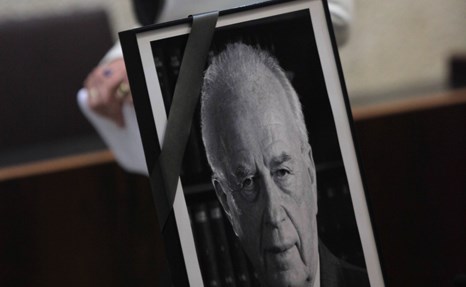
Only As a Democracy Will We Win
Written By: Yohanan Plesner
IDI President Yohanan Plesner says that even after 20 years, the assassination of former Prime Minister Yitzhak Rabin remains the Israeli democracy's breaking point. He calls on all peoples and their leaders to develop a joint democratic vision.

Israel’s next Equal Employment Opportunity Commissioner should be an Arab
Written By: Dr. Talya Steiner
The identity of the next commissioner is so important.
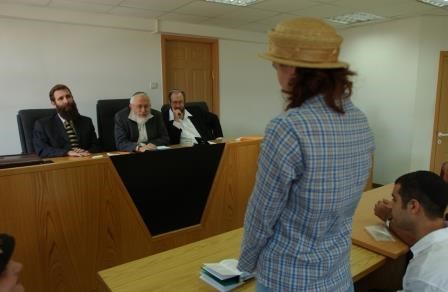
The End of the Chief Rabbinate?
Written By: Dr. Shuki Friedman
According to Dr. Shuki Friedman, the rabbinate's failure to provide adequate religious services caused the current trend towards privatization of religious services, which is creating a de-facto separation between religion and the state.

Democracy's Hatred for Hate
IDI President Yohanan Plesner writes that while democracy may be considered a fragile regime that has difficulties coping with extremism, there are still powerful means in the democratic toolbox that can and must be utilized to deal with the threats of homegrown terrorism and hatred of the "other", which can undermine Israel's character as a democratic state.

Education for Democratic Values and Combating Racism through Education
Written By: Prof. Mordechai Kremnitzer, Noam Lautman
IDI Vice President Prof. Mordechai Kremnitzer and Noam Lautman, Chairman of the Lautman Fund, recommend ways in which the Israeli educational system can strengthen democratic values, and warn that students should not be forced to choose between two competing alternatives—Israel as a nation-state or as a "state of all its citizens."

Override: A Serious Blow to Democracy
Written By: Dr. Amir Fuchs
Dr. Amir Fuchs argues that an override of Supreme Court decisions should be stoutly resisted by democrats from all parts of the political spectrum.

New Partners in the Struggle Against Terrorism
Written By: Prof. Yedidia Z. Stern
Yohanan Plesner argues that as Denmark grieves for a terror attack on its soil, Israeli leaders must broadcast "a message of partnership among democracies battling terrorism without sacrificing their democratic values."

Disqualifying Zoabi: Bad for Security and Bad for Democracy
Written By: Admiral (Res.) Amichay (Ami) Ayalon
As the Central Elections Committee begins to debate disqualifying MK Hanin Zoabi and others from running for Knesset, IDI Senior Fellow Ami Ayalon writes that as distasteful as some of her words may be, banning Zoabi from running would be a victory for Israel's detractors.

Democracy: The Key Election Issue
Written By: Prof. Mordechai Kremnitzer
In an op-ed in Maariv, IDI Vice President Prof. Mordechai Kremnitzer calls for an election campaign that focuses not only on foreign policy and Israel's social gap, but on the nature of Israeli identity and the value of Israeli democracy itself.
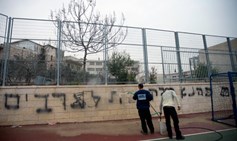
A Four-Step Plan to Combat Hatred between Jews and Arabs in Israel
Written By: Yair Sheleg
IDI Research Fellow Yair Sheleg outlines four steps that can allay fears, contribute to dialogue, combat hatred, and improve relations between Jews and Arabs in Israel

Banning Arab Workers: A Hypocritical Condemnation
Written By: Dr. Amir Fuchs
The mayor of Ashkelon's announcement following the massacre in a Har Nof synagogue that Arab workers would not be employed in his city was roundly condemned by members of the Knesset. Dr. Amir Fuchs points to the hypocrisy of these condemnations.

A Ready Alternative to the Nation State Law
Written By: Dr. Amir Fuchs
IDI researcher Dr. Amir Fuchs criticizes the proposed Basic Law that would establish Israel as the nation state of the Jewish people and recommends accepting Israel's Declaration of Independence as the preamble to Israel's future Constitution instead.

Confronting the Rabin Assassination
Written By: Prof. Mordechai Kremnitzer
Nineteen years after the murder of Prime Minister Yitzhak Rabin, IDI Vice President Prof. Mordechai Kremnitzer explores the background, meaning, and ramifications of this event, taking a hard look at some of the dangers he sees in Israeli society today.

Legal Opinion on the "Zoabi Bill"
Written By: Prof. Mordechai Kremnitzer, Dr. Amir Fuchs
A summary of a legal opinion on a proposed amendment to Basic Law: The Knesset that was submitted by Prof. Mordechai Kremnitzer and Dr. Amir Fuchs to the Ministerial Committee on Legislative Affairs.
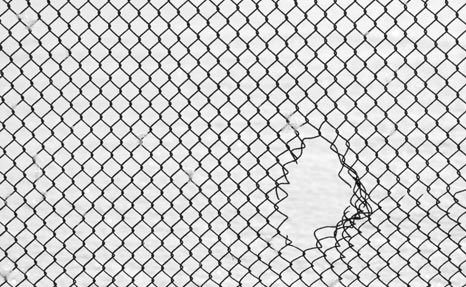
Overriding the Supreme Court: A Breach in the Wall of Democracy
Written By: Dr. Amir Fuchs
Dr. Amir Fuchs discusses the proposal to add an override clause to Israel's Basic Law: Human Dignity and Freedom that would enable the Knesset to bypass the High Court and deal a a severe blow to the main safeguard of human rights and minorities in Israel.
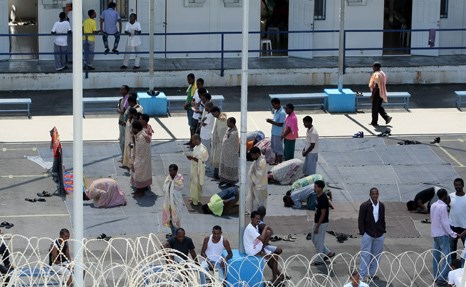
Second Strike and You Are (Finally) Out? The Quashing of the Prevention of Infiltration Law (Amendment No. 4)
Written By: Prof. Reuven (Ruvi) Ziegler
IDI Researcher Dr. Reuven (Ruvi) Ziegler presents a brief overview of the Israeli High Court of Justice's decision to strike down Amendment No. 4 of the Prevention of Infiltration Law, and explores several themes that may be of comparative constitutional interest.

The Admissions Committees Ruling: A Lack of Ripeness or Refusal to Decide?
Written By: Dr. Amir Fuchs
Dr. Amir Fuchs discusses the Israeli High Court of Justice's decision to uphold the "Admissions Committees Law," which allows small communities to reject applicants due to a lack of social suitability.
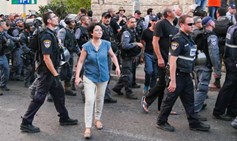
On the Punishment of MK Hanin Zoabi by the Knesset Ethics Committee
Written By: Dr. Assaf Shapira
IDI researcher Assaf Shapira provides background information on the decision of the Knesset Ethics Committee to suspend MK Hanin Zoabi for statements she made about the kidnapping and murder of three Jewish teenagers and about Operation Protective Edge.

On Intermarriage, Judaism, and Democracy in Israel
Written By: Benjamin (Benny) Lau
Rabbi Dr. Benjamin Lau shares thoughts on the tension between Judaism and democracy, in response to the public protests against the marriage of a Jewish woman who converted to Islam and an Israeli Arab.

Heart vs. Head: The Case of Hanin Zoabi
Written By: Prof. Mordechai Kremnitzer, Admiral (Res.) Amichay (Ami) Ayalon
Prof. Mordechai Kremnitzer and Admiral Ami Ayalon argue that while the heart has difficulty defending MK Hanin Zoabi's freedom of expression, the head demands that we object to the decision to remove her from parliamentary activity for six months.

Education for Democracy as a Remedy for Violence
Written By: Dr. Amir Fuchs
Attorney Amir Fuchs asserts that educating Israeli students regarding democracy and civics from a young age and throughout their education is the best way to prevent hatred, violence, and racism.

John Doe v. Jane Doe: Several Comments on the Privacy Revolution of Noam Solberg
Written By: Dr. Tehilla Shwartz Altshuler
IDI Researcher Dr. Tehilla Shwartz Altshuler analyzes a Supreme Court ruling that recalled a book and struck a balance between the right to privacy and the right to freedom of expression, and discusses larger questions of privacy in the digital age.

Basic Law: Nation State? Only a Constitution Can Guarantee Israel's National Character
Written By: Dr. Amir Fuchs, Prof. Mordechai Kremnitzer
Prof. Mordechai Kremnitzer and Attorney Amir Fuchs assert that the only way to guarantee Israel's existence as a Jewish and democratic state is not through a Basic Law that defining Israel as the nation state of the Jewish people but through a Constitution.

IDI Experts Submit Legal Opinion on Basic Law: Israel as the Nation State of the Jewish People
Written By: Prof. Mordechai Kremnitzer, Dr. Amir Fuchs
A legal opinion opposing the proposed Basic Law: Israel as the Nation State of the Jewish People, which was submitted by IDI Vice President Prof. Mordechai Kremnitzer and Attorney Amir Fuchs to the Ministerial Committee on Legislation on June 4, 2014.

Force-Feeding Prisoners: A Serious Violation of Human Dignity
Written By: Dr. Amir Fuchs
In an op-ed in <em>Maariv</em>, Attorney Amir Fuchs warns that force feeding hunger striking prisoners is a serious violation of human dignity, and should not be permitted in order to serve public relations efforts of the State of Israel.

Basic Law: Israel as the Nation State of the Jewish People – A Danger to the Zionist Enterprise
Written By: Dr. Amir Fuchs, Prof. Mordechai Kremnitzer
In an article in the Hebrew weekly <em>Makor Rishon</em>, Prof. Mordechai Kremnitzer and Attorney Amir Fuchs argue against the current initiative to pass Basic Law: Israel as the Nation State of the Jewish People, which they see as divisive and problematic.

Price Tag Attacks: Racist Crimes
Written By: Dr. Amir Fuchs
In an article in <em>Haaretz</em>, Attorney Amir Fuchs stresses the need to wage a genuine war against racism, in order to preserve the values of Zionism and safeguard the Jewish and democratic state.

Israeli Public Opinion on Reducing Funding to Organizations that Mark Independence Day as the "Nakba"
Written By: Mr. Chanan Cohen
What do Jews in Israel think about the law mandating the reduction of government funds to institutions that mark Israel Independence Day as a day of mourning for the Palestinian "Nakba"? Find out in this mini-survey conducted by IDI's Guttman Center.
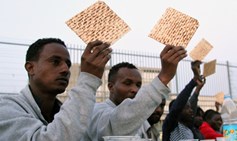
The Lessons of Passover: We are the Other
Written By: Prof. Yedidia Z. Stern
Prof. Yedidia Z. Stern asserts that if we see ourselves as "other" and identify with the stranger, the poor, and people with disabilities, historic redemption of our ancestors from Egypt will be an ongoing redemption for our generation.

Only a Constitution will Ensure Good Governance in Israel
Written By: Dr. Amir Fuchs
IDI researcher Attorney Amir Fuchs asserts that the only way for Israel to ensure good governance is by adopting a constitution.
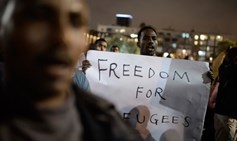
The Prevention of Infiltration Act in the Supreme Court: Round Two
Written By: Prof. Reuven (Ruvi) Ziegler
IDI researcher Dr. Reuven (Ruvi) Ziegler explains why he believes the Supreme Court should overturn Amendment No. 4 of the Prevention of Infiltration Act just as it invalidated its predecessor.

Basic Law: Referendum—Changing the Rules of the Game of Israeli Democracy
Written By: Dr. Dana Blander
Dr. Dana Blander draws on the findings of Israeli public opinion polls and explores some of the ramifications of the new Basic Law: Referendum, a law that establishes a system in which every citizen is entitled to participate in historic decisions on withdrawal from territory.

Who is Responsible for Finding a Solution to the Plight of Mesoravot Get?
Written By: Prof. Shahar Lifshitz
Prof. Shahar Lifshitz outlines what halakhic authorities and the Knesset can do in order to resolve the issue of get refusal, as discussed at the Second Agunah Summit.

The Electoral Threshold: Why the Rush?
Written By: Prof. Ofer Kenig
In an op-ed in the Jerusalem Post, Dr. Ofer Kenig warns that while there is nothing wrong with a moderate increase in Israel's electoral threshold, increasing it from 2% to 3.25% in a single step is problematic.

Building a Shared Society: On the Priorities of the Israel Police
Written By: Prof. Mordechai Kremnitzer
Prof. Mordechai Kremnitzer explains the importance of the fifth meeting of IDI's Police and Society Forum, which was dedicated to the question of partnership and transparency in the relationship between the Israel Police and Arab society.
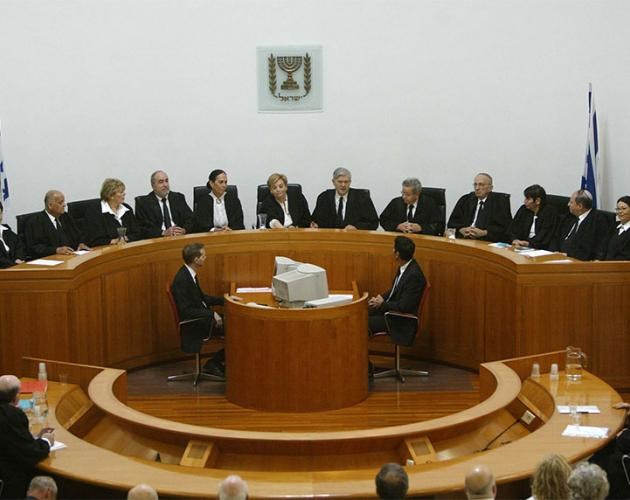
The Haredi Draft: Is the Shaked Committee's Bill Destined to be Overturned?
Written By: Prof. Yedidia Z. Stern
As the Shaked Committee begins to vote on its proposal for the Haredi draft, Prof. Yedidia Z. Stern warns that the proposal's recommendation to exempt Haredi men of draft age during a three-year "adjustment period" is both inequitable and ineffective.

Civil Unions for All
Written By: Prof. Shahar Lifshitz
Prof. Shahar Lifshitz explains why IDI's proposal for civil unions, which was first presented in his IDI policy paper The Spousal Registry, is the best solution possible today for alleviating the distress of couples who cannot or do not want to marry in a religious ceremony in Israel.

Do You Have to Earn Dignity?
Written By: Prof. Tamar Hermann
Is dignity something that must be earned? Prof. Tamar Hermann, Head of IDI's Guttman Center for Surveys, explores this question, as IDI's Israel Speaks project assembles 200 citizens to begin drafting a Declaration of Human Dignity.

A Truly Supreme Court
Written By: Prof. Mordechai Kremnitzer, Dr. Guy Lurie
In an op-ed in TheMarker, IDI Vice President Prof. Mordechai Kremnitzer and Dr. Guy Lurie discuss the benefits of establishing a new appellate court between the district courts and the Supreme Court.

Non-Jews in a Jewish State: Searching for a New Paradigm
Written By: Kalman Neuman
In an article in The Jewish Week, Rabbi Dr. Kalman Neuman of IDI's Religion and State project examines some of the thorny questions of Jewish law when it comes to non-Jews in a Jewish state.

Human Rights under Attack
Written By: Dr. Amir Fuchs
IDI Researcher Attorney Amir Fuchs discusses two indirect threats to human rights in Israel: attacks on the Israeli Supreme Court and attacks against Israeli human rights organizations.

International Disabilities Day 2013: Human Rights and Judaism in Action
Written By: Benjamin (Benny) Lau
In honor of International Day for Persons with Disabilities, Rabbi Dr. Benjamin (Benny) Lau updates us on IDI's efforts on behalf of people with disabilities and reveals that people with guide dogs are now allowed to access the Western Wall.

Organized Criminals Today, Everyone Else Tomorrow
Written By: Lina Saba
In an op-ed in Haaretz, Attorney Lina Saba-Habesch warns that extending the use of administrative detention to apply to suspects in cases of organized crime could lead to the use of this extreme method, or of other extreme methods, in combating other forms of crime.

The Haredi Draft: Equality Now?!
Written By: Prof. Yedidia Z. Stern
On November 21 2013, Prof. Yedidia Z. Stern appeared before the Shaked Committee and argued that criminal sanctions are not recommended for reaching conscription goals. In an op-ed in Makor Rishon, he explains why.

Prof. Mordechai Kremnitzer Speaks Out on Using Administrative Detention in Cases of Organized Crime
Written By: Prof. Mordechai Kremnitzer
IDI Vice President of Research Prof. Mordechai Kremnitzer responds to the possibility that the police will use administrative detention to combat organized crime, much in the manner as it is used to combat terrorism.

The Binding of the Boy from Damascus
Written By: Prof. Yedidia Z. Stern
How should Jews in Israel feel about the mass slaughter of Arabs by Arabs just a few miles away? IDI Vice President Prof. Yedidia Z. Stern shares thoughts in this article, which was originally published in The Jewish Week.
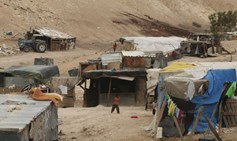
Regulating Bedouin Settlement: A Disengagement Plan for the Negev
Written By: Ronit Levine-Schnur
Ronit Levine-Schnur analyzes the Bill to Regulate Bedouin Settlement in the Negev 5773–2013, warns that it seems to be motivated by an exaggerated fear of a Bedouin takeover of the Negev, and offers an alternative approach.

On the Need for Civil Unions in Israel
Written By: Benjamin (Benny) Lau
Rabbi Dr. Benjamin (Benny) Lau expresses support for the proposed civil union bill, which would allow couples who do not want to marry in a religious service to form a legally recognized union and be eligible for the benefits and responsibilities associated with marriage.

Civil Unions in Israel as a Democratic Compromise
Written By: Prof. Shahar Lifshitz
Prof. Shahar Lifshitz, author of an IDI policy paper proposing a spousal registry as a framework for civil unions in Israel, welcomes the reintroduction of this issue to the public agenda but expresses some concern about the formulation of the current bill.

Separating the Prosecution from the Police
Written By: Prof. Mordechai Kremnitzer, Dr. Guy Lurie
Most criminal cases in Israel are prosecuted by the Israel Police rather than by the State Prosecutor. Prof. Mordechai Kremnitzer and Dr. Guy Lurie call for a division that would make the Police responsible for investigations and the State Prosecutor responsible for indictments and trials.

The Contributors to the State Bill: Contributing to the Jewish-Arab Divide
Written By: Dr. Talya Steiner, Prof. Mordechai Kremnitzer
Prof. Mordechai Kremnitzer and Att. Talya Steiner warn that the veteran's benefit bill, which is intended to extend benefits to those who have contributed to the State, discriminates against Israel's Arab citizens, who are exempt from military service in Israel.

Blind to the Rights of the Disabled
Written By: Benjamin (Benny) Lau
In an article in The Jewish Week, Rabbi Dr. Benjamin (Benny) Lau calls on religious authorities who hold human rights dear to find a way to allow people with disabilities to have access to the Western Wall plaza.

What Can We Learn about Israeli Policy Making from the Supreme Court's Ruling on the Anti-Infiltration Law?
Written By: Dr. Talya Steiner
Attorney Talya Steiner warns that a Supreme Court's judgment that struck down an amendment of Israel's anti-infiltration law as unconstitutional points to significant flaws in Israel's process of policy-making.

Quashing Legislation Mandating Lengthy Detention of Asylum-Seekers
Written By: Prof. Reuven (Ruvi) Ziegler
Dr. Reuven (Ruvi) Ziegler shares observations on the decision of the Israeli Supreme Court that an amendment of the Prevention of Infiltration Law that mandated lengthy detention of asylum seekers is unconstitutional.
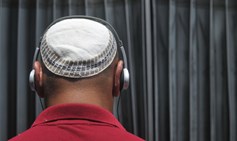
No to the Separation of Religion and State in Israel
Written By: Yair Sheleg
Should the American model of separation of church and state be applied to Israel? In an article in <em>The Jewish Week</em>, IDI's Yair Sheleg argues that Israel needs a unique model.

From Institutions to Community Housing
Rabbi Dr. Benjamin Lau, head of IDI's Human Rights and Judaism in Action project, presents the transition from institutions to homes in the community for people with disabilities as a Jewish imperative.

Life Under Two Suns: When Human Rights and Jewish Values Collide
Written By: Prof. Yedidia Z. Stern, Jay Ruderman
The first in a series of articles by researchers from IDI's Judaism and democracy projects and Human Rights and Judaism project on the complementary but tense relations between Judaism and democratic values.

Haredi Integration: Not by Re-Education
Written By: Haim Zicherman
IDI researcher Attorney Haim Zicherman warns against attempts to integrate ultra-Orthodox Jews into the army by encouraging them to abandon their lifestyle, and calls for developing mechanisms that will accept and respect their values.

Jabotinsky's Vision of a Democratic, Jewish Nation State
Written By: Dr. Amir Fuchs
In honor of Israel's 65th birthday, Attorney Amir Fuchs reflects on whether the reality of today's Israel adheres to the values and vision of early Zionist leader Ze'ev Jabotinsky.

Asylum Seekers in Israel: A Snapshot
Written By: Prof. Reuven (Ruvi) Ziegler
On the occasion of International Migrants Day and an IDI roundtable on Israeli immigration policy, IDI researcher Adv. Reuven (Ruvi) Ziegler provides an overview of the treatment of African asylum seekers who have crossed into Israel via its southern border.
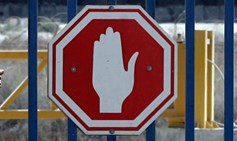
An Invitation to Racism
Written By: Dr. Amir Fuchs
On December 4, 2012, the Israeli Supreme Court heard a petition arguing that the “Admissions Committee Law” is discriminatory and unconstitutional. Attorney Amir Fuchs explains why he sees this law as an insult to Israel's democracy.

Faking Feminism
Written By: Debora Lederman-Danieli
The issue of the exclusion of women and their marginalization in Israeli society has dominated the media in Israel during the past few weeks. In this article, which was originally published in The Seventh Eye on December 25, 2011, Dr. Debora Lederman-Danieli argues that the media's struggle against the phenomenon of the degradation of women requires much more than disingenuous, populist outcries.

Abstract: Health Inequality of Arabs and Jews in Israel
Written By: Shlomit Kagya, Nabil Khattab
A paper that reviews the state of research on health inequality between Jews and Arabs in Israel in order to develop a comprehensive research program that will contribute to the understanding of the factors leading to inequality.

Decade in Review: Human Rights in Israel
Written By: Prof. Mordechai Kremnitzer
IDI Vice President Professor Mordechai Kremnitzer weighs in on the challenges faced by Israel's High Court of Justice, in an article that was published at the end of the third millennium as part of a collaboration between IDI and Walla!, a popular Israeli website.

Privatization of Prisons: The Path to a Corporate Regime
Written By: Effi Michaeli
Effi Michaeli, warns against the full privatization of prisons and argues that such a decision represents a breach of boundaries that can transform Israel into a corporate regime.

An Israeli Republic, If We Can Keep It
Written By: Yohanan Plesner
Israel must not squander its opportunity for much needed renewal, but first the people need to weigh in and choose a consensual mechanism of constitutional reform
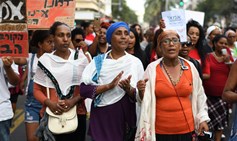
The Ethiopian Israeli Protests
Written By: Dr. Tehilla Shwartz Altshuler
What is the media's responsibility in covering the protests of the Ethiopian community against and what are the problems in the coverage?

The Case for Substantive Democracy
Written By: Yohanan Plesner
As calls for a "majoritarian democracy" gain strength in Israel, IDI's President warns of the dangers associated with a tyranny of the majority, and makes the case for a richer interpretation of democracy, grounded in the principles of liberty, equality and the separation of powers.
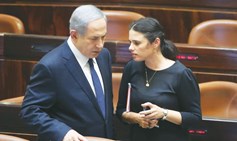
Who's Afraid of a Jewish State with Equality for All?
Written By: Yohanan Plesner
A state that is proud of its identity has nothing to fear from granting all its citizens equality.
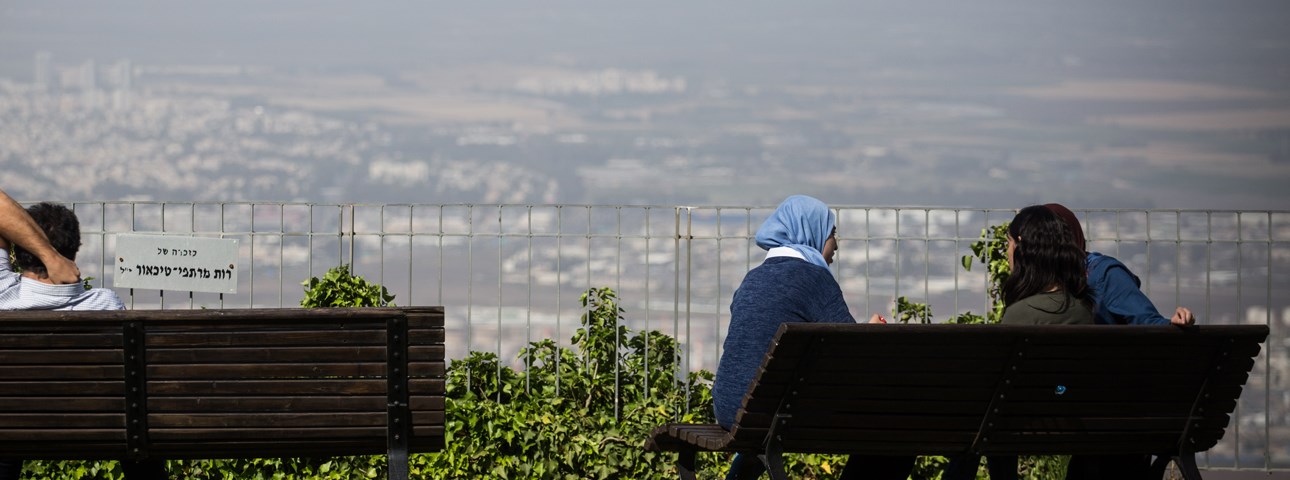
Time to Include Arabs among the Decision-Makers
Written By: Dr. Nasreen Haddad Haj-Yahya
The state and its Arab leadership, not only the political leadership, must work together to bring as many Arab citizens as possible into the decision-making echelons.

Events in Jordan Prove the Power of Israel's Censor Has Grown
Written By: Dr. Tehilla Shwartz Altshuler
Israel's Military Censor, an institution that has no parallel in any other democracy in the world, must cease to exist.

'Yes' to a Nation-State, 'No' to a Nationalistic State!
Leaders of the Israel Democracy Institute call for alternative proposal that would place nation-state of the Jewish people on equal footing with democratic obligation to equality for all Israeli citizens.
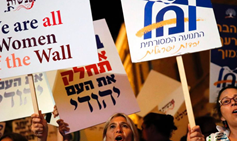
United by Outrage? Israel's Arab Citizens and American Jews
Written By: Dr. Nasreen Haddad Haj-Yahya
Now you know what it's like to feel marginalized and unequal in Israel. Arab citizens know that all too well. That's why we must join forces.
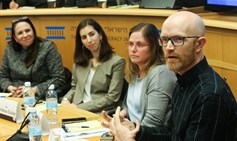
‘Zero Tolerance Approach to Terrorism’
IDI hosted an exclusive and high-level roundtable discussion on Facebook policies, Israel’s proposed Facebook Bill and freedom of expression. Simon Milner, Facebook policy director for the United Kingdom, Middle East and Africa, participated.

IDI President Responds to Advancement of V-15 Bill
Today, the V-15 bill advanced to the Knesset, with a vote expected as early as later this week.

